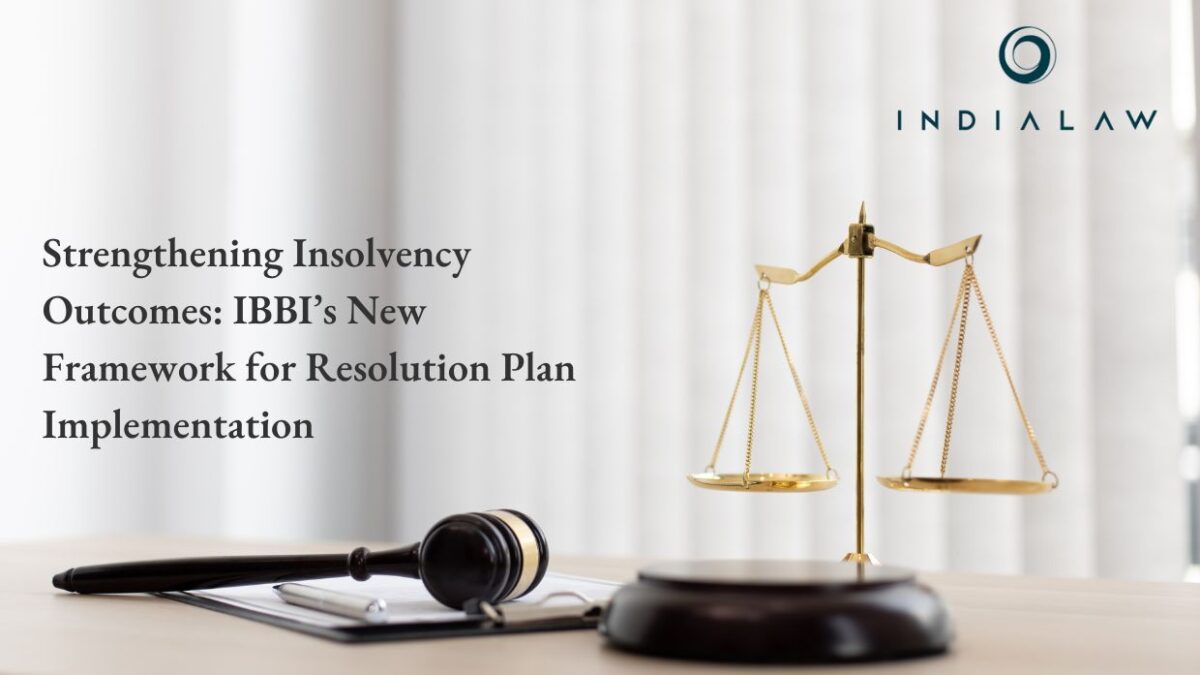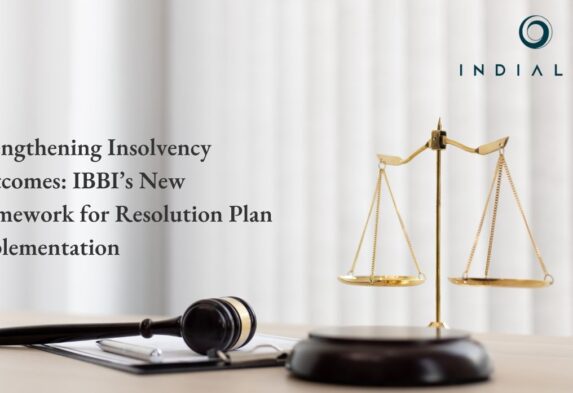Strengthening Insolvency Outcomes: IBBI’s New Framework for Resolution Plan Implementation


The Insolvency and Bankruptcy Board of India (IBBI) has introduced the much needed proposal to enhance transparency and efficiency in implementing resolution plans under the Insolvency and Bankruptcy Code (IBC), 2016. In its latest discussion paper dated November 19, 2024, the IBBI emphasizes the mandatory constitution of monitoring committees, following recommendations by the Supreme Court.
Table of Contents
Why Monitoring Committees? A Legal Nudge from the Supreme Court
In a landmark November 2024 judgment, the Supreme Court identified a critical gap in the IBC—the lack of statutory provisions for monitoring committees. The Court stressed the importance of establishing these committees to oversee the implementation of approved resolution plans.
It recommended that such committees include representation from the Committee of Creditors (CoC), the resolution professional, and the successful resolution applicant. Quarterly updates to adjudicating authorities were also advised to ensure smooth execution and compliance.
The IBBI’s Proposals: Bridging the Gap
Mandatory Monitoring Committees for Every Resolution Plan
To address the Supreme Court’s observations, the IBBI has proposed making monitoring committees mandatory for all approved resolution plans. This is a departure from the current framework, where the formation of such committees is optional and left to the discretion of the CoC.
Balanced Composition and Comprehensive Oversight
The proposed committees will include:
1. A resolution professional or another insolvency professional as the chairperson.
2. Nominees from both the CoC and the successful resolution applicant, ensuring equal representation.
The committee will monitor all aspects of resolution plan execution, such as asset transfers, statutory compliance, and the distribution of proceeds.
Accountability and Reporting
To promote transparency, monitoring committees must:
- Submit quarterly progress reports to adjudicating authorities and the IBBI.
- Seek directions when implementation deviates from agreed terms.
Funding and Fees
The successful resolution applicant will fund the committee’s operations, while the chairperson’s fee will be capped at the rate received during the Corporate Insolvency Resolution Process (CIRP).
What This Means for Insolvency Resolution
The proposal is a significant step towards institutionalizing accountability in insolvency resolutions. By mandating the formation of monitoring committees, the IBBI aims to:
– Enhance oversight of the resolution process.
– Foster trust among stakeholders by ensuring adherence to agreed terms.
– Reduce delays and disputes in plan implementation.
Public Participation: Shape the Future of Insolvency Laws
The IBBI has invited public comments on this transformative proposal. Stakeholders, including creditors, resolution professionals, and insolvency entities, can submit their feedback by December 9, 2024. The final amendments will reflect the insights received, further strengthening the insolvency ecosystem.
Conclusion: A Bold Step Towards Efficiency
The IBBI’s initiative highlights its commitment to fostering an effective and transparent insolvency framework. By institutionalizing monitoring committees, the regulatory body is addressing gaps in the IBC, ensuring that resolution plans are implemented seamlessly and stakeholders’ interests are safeguarded.
This bold move could redefine how insolvency resolutions are monitored, paving the way for a more robust and reliable system.
For further details please write to contact@indialaw.in




